How to Send Bulk WhatsApp Messages Without Getting Banned in 2026
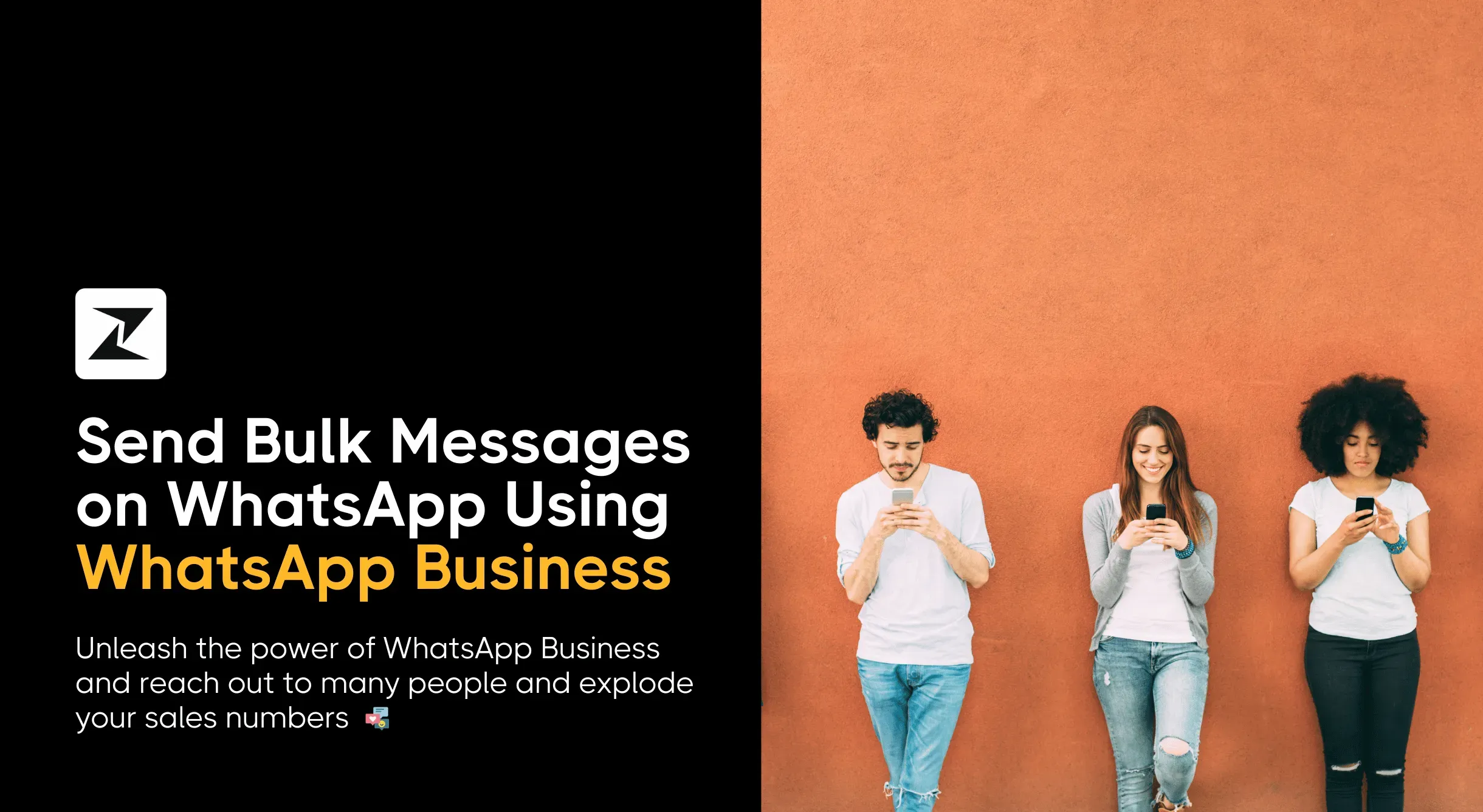
Every now and then, you would receive a message on your WhatsApp app about a product, sale, or simply an update about your account. Because this message is addressed to you, you might think that you are the only one who got it.
But that is not the case. Companies use their database to segment their audience and use WhatsApp Business API to send various outreach messages to maximize engagement. In fact, WhatsApp offers a staggering engagement rate of 70%.
Don’t worry if you are still confused about how it is done. In this guide, I will explain what WhatsApp's bulk messaging feature is and how you can use it to send bulk messages to your target market.
I will also go over the problems you might face when using the WhatsApp Business app to send a large number of messages at once and provide solutions for the same.
What is bulk messaging on WhatsApp?
In Layman's terms, bulk advertising messages in WhatsApp refer to the texts that are sent to a huge number of recipients at once during WhatsApp marketing.
These messages allow you to conserve time and energy as you are not creating and sending them one at a time to your audience. This way, you can consistently engage, address questions, and guide them across the stages of the sales pipeline.
“The buyer’s journey is nothing more than a series of questions that must be answered.”
Now you might think, can I send bulk messages using the normal WhatsApp app? In theory, you can. But the normal WhatsApp app is built for users to send a limited amount of messages and doesn't offer facilities like bulk messaging.
Also, if you send too many messages using a user account instead of a business one, your recipients might consider it spam and report you to WhatsApp, which can result in you getting banned from the platform.
That’s why you should use WhatsApp Business to send bulk messages; a verified business profile allows you to build trust and rapport among your audience. Sending bulk messages is more convenient with the web version of WhatsApp Business, enabling you to handle large volumes of messages from your desktop. On top of that, you can also add videos, images, and unlimited characters.
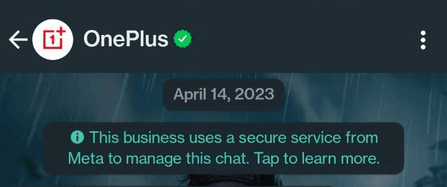
Can I send a thousand WhatsApp messages without getting my account banned?
If you want to send thousands of messages on WhatsApp, it is not possible without the help of WhatsApp Business API. This is because the WhatsApp Business App only lets you connect to 256 contacts at once. Also, WhatsApp's Messaging Guidelines make it so that you can’t spam send bulk messages or you risk getting your account banned.
One of the most commonly used ways to reach out to multiple people on WhatsApp is to use WhatsApp Broadcasts. By creating a broadcast list, you can send a large volume of messages simultaneously.
Create WhatsApp message templates using Zixflow
Use the WhatsApp template provided by Zixflow to send messages to your multiple customers
Login TodayHow to send bulk messages on WhatsApp?
Since the WhatsApp Business Platform consists of two components; WhatsApp Business App and the WhatsApp Business API, let’s look at each of them separately:
WhatsApp Business App
To send bulk messages using the WhatsApp Business App, you need to first create a broadcast list in the app. To do that, follow these steps:
- Go to the WhatsApp Business App.
- Navigate to the Chat> Menu button> New List.
- Then, enter the names of the people you wish to send the messages to. You can also tap the + button and choose them from your contacts.
- After you have selected all the people, click OK. And tap Create.
- Create and send your message.
Although the WhatsApp Business App is free to use, it limits you to only adding 256 users to your broadcast list. Also, the likelihood of getting blocked is higher if recipients report your messages as spam or if you can’t stick to WhatsApp’s Guidelines.
WhatsApp Business API
WhatsApp API allows you to integrate WhatsApp’s messaging capabilities into external applications and use them to send messages, share PDFs and other media, manage contacts, and automate message sending at scale.
To use WhatsApp API to send bulk messages, you require two things:
- A WhatsApp API account and
- WhatsApp Business partners like Zixflow.
So let’s talk about the WhatsApp number. To set up an official WhatsApp Cloud API, you will need four things:
- A phone number that is not linked with WhatsApp.
- A Facebook account for your business.
- A privacy policy page on your site.
- Payment method to add funds for your campaign, such as credit or debit card.
After that, you have to set up the API account. To do that, you have to create a Meta developer account and once that is done, you have to set up the WhatsApp API. It is not a difficult but somewhat complex process. That’s why, I am linking this guide on how to set up a WhatsApp API account that explains the entire process from the ground up.
Now, after setting up the WhatsApp API, you also need WhatsApp Business Message Templates because unlike sending normal messages on WhatsApp, businesses need certain message templates that have to be pre-approved to send bulk messages through the WhatsApp API. To create and send message templates for review, check out this video below.
Send bulk messages using Zixflow
Once you have finished setting up the WhatsApp API and got your business ID, phone number, and access token, you can integrate it with Zixflow.
Why Zixflow? Because it is a sales engagement platform that lets you run outreach campaigns on WhatsApp. It offers advanced targeting functionality, where you can segment your audience and send tailored messages for WhatsApp marketing to particular segments. You can also send the messages at a predetermined time by utilizing this tool for WhatsApp automation.
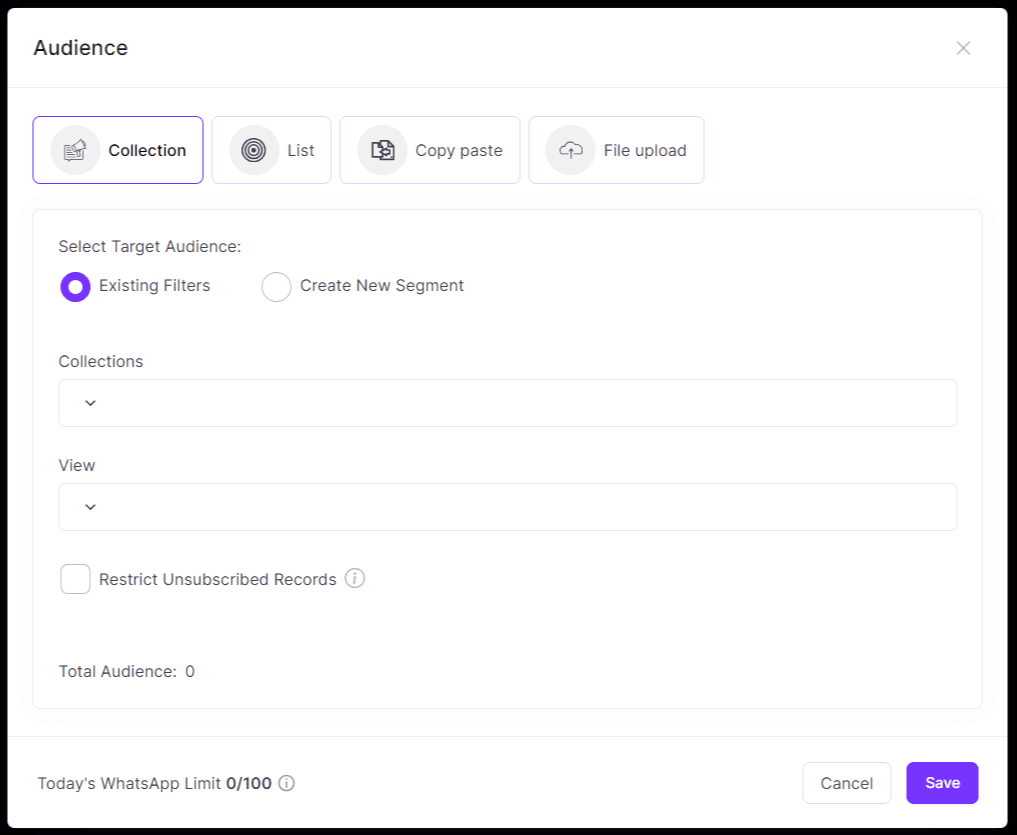
On top of that, Zixflow provides a robust sales CRM which you can integrate with your WhatsApp Business API to leverage the data stored in the CRM in your campaigns. On that note, let’s see how you can connect Zixflow with WhatsApp Business API.
Looking for a platform to revolutionize your WhatsApp Business message game?
With Zixflow you can easily send bulk messages and you can level up your business growth
Signup NowTo link your WhatsApp API with Zixflow, log in to your Zixflow account and click on the campaign option in the left side menu.
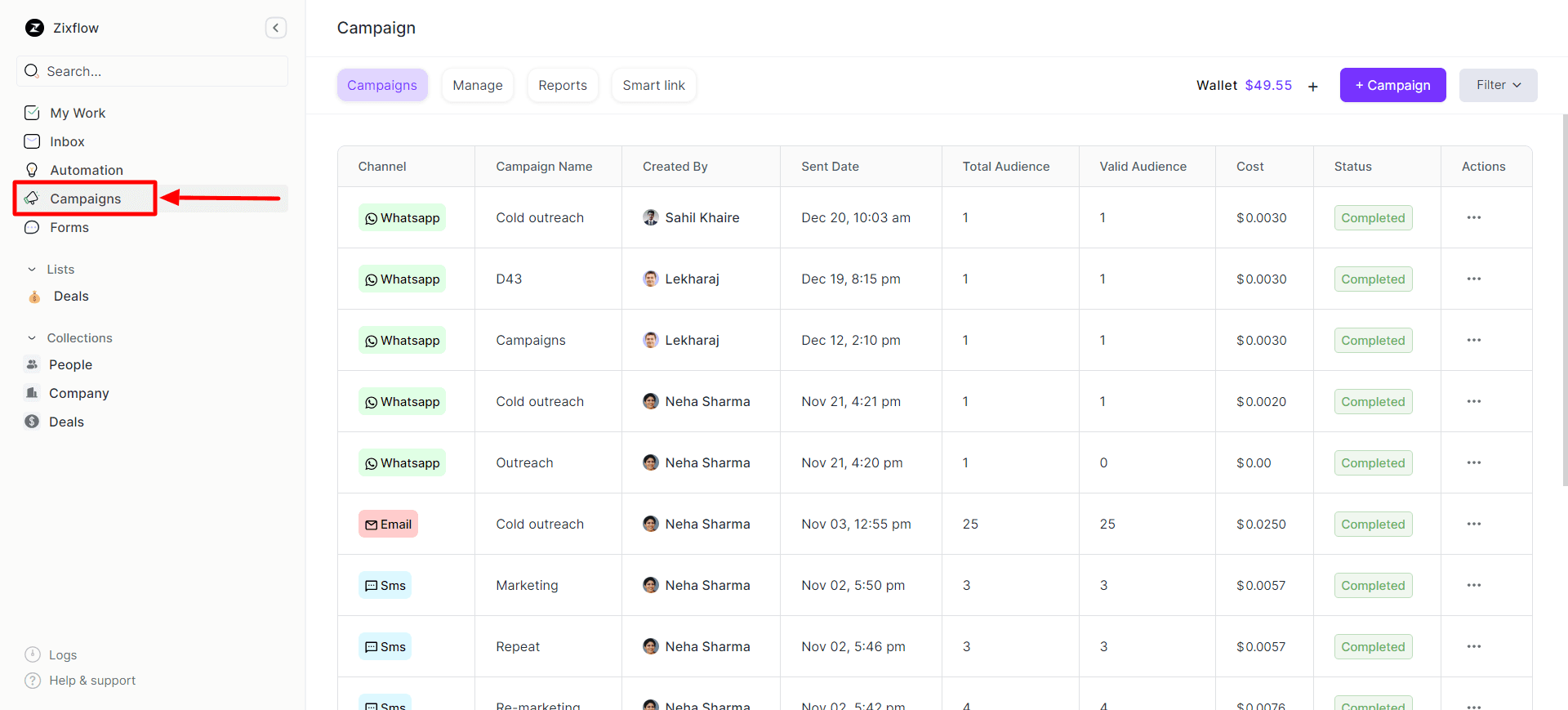
Now you are in the campaign sections. Here, click on the new campaign button at the top left and you will see all the different types of outreach campaigns you can create.

Next, if this is your first time integrating WhatsApp with Zixflow, you will see a red-colored option under WhatsApp campaigns. Click on it to open the account settings and press the Add Account option.
Now, you have to enter your WhatsApp Business Account ID, phone number ID, and the access token that you generated after creating your WhatsApp API. Click the save & validate button to finish the process.
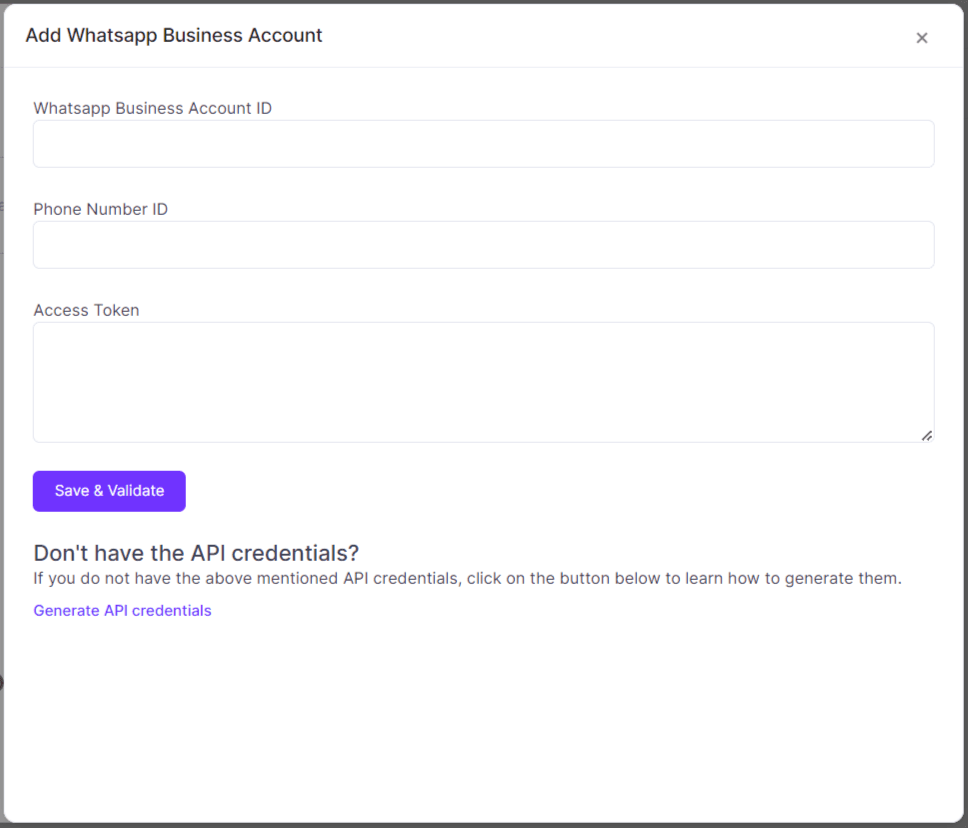
And that is it. After this, you can create a campaign for WhatsApp marketing and import the contacts you want to send the message to. With Zixflow, you can also save craft message templates and see how they will look on the devices of your recipients.
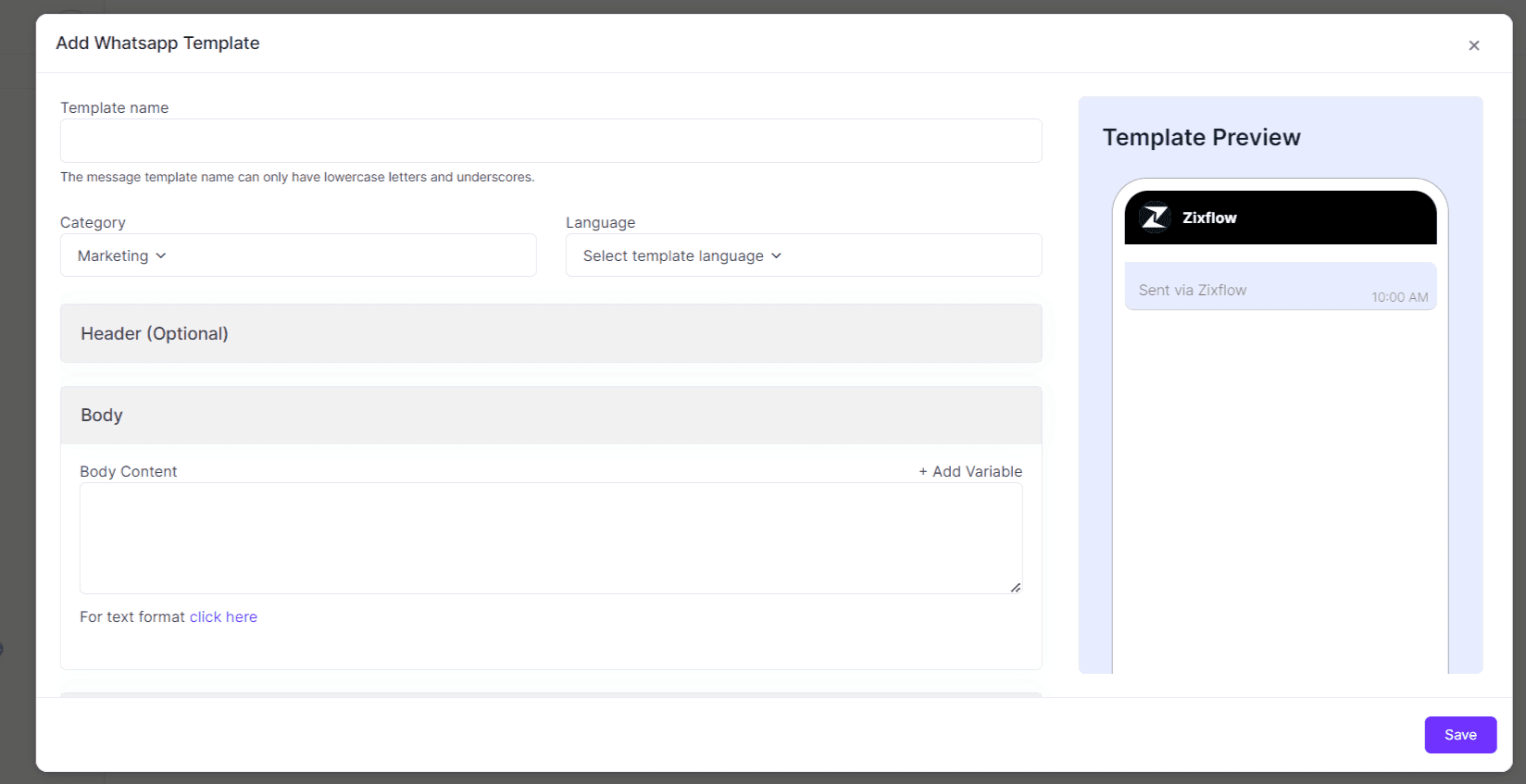
Create WhatsApp message templates using Zixflow
Use the WhatsApp template provided by Zixflow to send messages to your multiple customers
Login TodayWhy should you use WhatsApp API instead of the WhatsApp Business App?
If you are a startup or a small business, the WhatsApp Business App is sufficient for your needs. It doesn’t cost anything and you don’t have to get any other software.
However, the WhatsApp Business App is not suitable for you if you want to send bulk messages to a large number of people because the app doesn’t allow you to add more than 256 contacts to a broadcast list.
This means that you cannot send messages to more than 256 people using the broadcast list. So, if you have a bigger target audience, you need to use the WhatsApp API. With that said, let’s look at a few other benefits offered by the WhatsApp Business API.
Benefits of using WhatsApp API
There are various benefits of using WhatsApp API for your business. Here are some of the advantages:
Rich media support
With the API, you can send various types of media files, such as images, videos, and documents to showcase your products or services based on your WhatsApp marketing strategies.
Doing so allows you to provide visual instructions and deliver a more engaging customer experience.
Scalability and integration
One of the advantages that API offers in comparison to the app is the ability to scale your campaigns by integrating it with other platforms. For example, you can integrate WhatsApp API with your CRM to streamline workflows and improve productivity.
Automated messaging
The API lets you automate certain messaging processes like sending abandoned cart reminders or regular updates to engage your customers to get more sales. Automating also helps in saving time and resources while ensuring consistent and prompt conversations.
Superior customer support
WhatsApp Business API facilitates efficient customer support by letting you have a presence on a channel that your customers use daily. You can provide personalized assistance using WhatsApp and incorporate chatbots to handle common inquiries, offering instant support to your customers 24/7.
Send Bulk Messages On WhatsApp Using Zixflow
Use the campaign functionality of Zixflow to integrate WhatsApp API and run WhatsApp campaigns from the software itself.
Get in TouchWhatsApp + Zixflow to reach a global audience
Utilizing the best tools for WhatsApp to send bulk messages efficiently can significantly enhance your messaging strategy and ensure effective communication with your audience. However, you must comply with WhatsApp’s policies and prioritize user privacy before sending these messages.
By following the guidelines and employing a thoughtful approach, you can leverage WhatsApp to communicate with your target market and promote your offerings to achieve business goals.
And with Zixflow, you can combine WhatsApp’s reach with the usability of Zixflow to engage with a global audience and utilize different types of sales to market your products or services.
It is an outbound sales platform that lets you run WhatsApp campaigns as well as other kinds like email and SMS. So, you can sign up on the platform for free and ensure multi-channel engagement with various campaign options available in the software.
Frequently asked questions
Here are some of the commonly asked questions regarding sending bulk WhatsApp messages using the WhatsApp Business platform:
What does sending WhatsApp messages at scale entail?
Bulk messages in the WhatsApp Business Platform allow you to scale your WhatsApp outreach by reaching out to hundreds and thousands of customers simultaneously. These messages support two-way conversations so your contacts can respond to them if they have any questions or want to learn more about your products/ services.
What is the cost of sending bulk WhatsApp messages?
The charges for WhatsApp messages vary based on the country and type of messages you are sending. For example, the marketing messages cost the most while the utility ones are free after the recent WhatsApp pricing update.
On the other hand, if you are using the WhatsApp Business App, you don’t have to worry about the cost since it is free to send bulk messages on the app.
What do I need to qualify for sending WhatsApp Broadcasts at scale?
To send WhatsApp Broadcasts using the WhatsApp Business API, you must first get your account approved. This can be done through platforms like Zixflow. You will also need pre-approved message templates and sufficient balance in your Campaign Wallet to get started. After you add a list of users who have consented to receive messages, you can reach out to them effectively using the platform.
Can I tailor my WhatsApp bulk messages?
Absolutely! You can tailor your messages by adding details like the customer’s name, order information, and more. With Zixflow, you can use variables in your messaging templates to automatically personalize each message, enabling you to scale communication without making individual edits.
How can I stop recipients from marketing my WhatsApp messages as spam?
Although you can’t control when a contact will report you spam, but here are some of the things you can do to significantly lower this possibility:
- Obtain WhatsApp opt-in: Only reach out to contacts who have explicitly opted in to receive messages.
- Stick to approved messaging templates: Use only WhatsApp-compliant message templates to stay within policy.
- Share meaningful content: Avoid sending generic promotions and instead, concentrate on delivering valuable and engaging information.
- Keep an eye on quality score: WhatsApp evaluates how your messages perform. Platforms like Zixflow let you monitor the quality rating of your phone number within its platform.
- Promote interaction: Encourage users to reply, as two-way communication boosts engagement and reduces the chance of being flagged as spam.
Is there any restriction on sending WhatsApp messages at scale?
Although the WhatsApp Business API offers far more flexibility than the app, a few important restrictions still apply:
- Broadcast Tier Limits – Initially, you can message up to 1,000 users per day. This limit can expand automatically if you interact with at least 50% of your current limit within a 7-day window.
- Use Only Approved Templates – Messages must be sent using templates that have been reviewed and approved by WhatsApp.
- Mandatory User Consent – You must have explicit permission from contacts before messaging them, or your account could face restrictions.
Is it illegal to send WhatsApp messages through a tool?
No, but make sure you are working with an official WhatsApp API provider like Zixflow. Relying on unverified third-party tools can lead to your number being permanently banned. To avoid such risks, it’s essential to stay compliant by using Meta-approved WhatsApp tools.
Is it possible to automate my bulk WhatsApp messaging?
Yes! By using Zixflow, you can create custom workflows or WhatsApp chatbots to automate your engagement across WhatsApp.
All trademarks mentioned belong to their respective owners. For instance, "WhatsApp" and its logo are trademarks of WhatsApp, LLC, used here for reference only under Fair Usage Policy. We make no claim of ownership.
